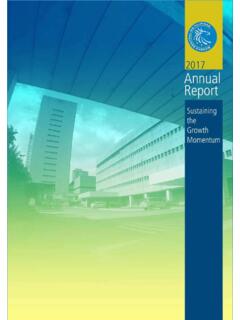Transcription of Privatization Effects on Economic Growth - Elon University
1 Issues in Political Economy, Vol. 14, August 2005 Impact of Privatization on Economic Growth Adnan Filipovic, Furman University The concept of Economic Growth is a fundamental part of the field of macroeconomics, which is masterfully captured in William Easterly s The Elusive Quest for Growth . Easterly powerfully depicts the real, long term Economic crisis that many countries are facing around the world and stimulates the reader to take part in the search for Economic Growth . In the early parts of The Elusive Quest for Growth , one begins to appreciate the meaning behind the book s title. Individual policies such as aid for investment, population control, and human capital investment have all failed as a solution to the lack of Economic Growth in underdeveloped countries. In other words, Easterly alludes to an idea that a combination of different factors (investment, education, technological innovation), along with a fundamental structural change might be the path to long term Economic Growth .
2 One of the underlying themes throughout Easterly s book is the idea that people respond to incentives. In fact, most of Easterly s analysis of various Economic models throughout the book is an analysis of the incentives created by those models (Easterly, 2001). This paper examines the relationship between Growth and Privatization from an incentives perspective. Privatization , a method of reallocating assets and functions from the public sector to the private sector, appears to be a factor that could play a serious role in the quest for Growth . In recent history, Privatization has been adopted by many different political systems and has spread to every region of the world. The process of Privatization can be an effective way to bring about fundamental structural change by formalizing and establishing property rights, which directly create strong individual incentives.
3 A free market economy largely depends on well-defined property rights in which people make individual decisions in their own interests. The importance of property rights is captured by economist Hernando de Soto as he states, Modern market economies generate Growth because widespread, formal property rights permit massive, low-cost exchange, thus fostering specialization and greater productivity (1996). Along with creating strong incentives that induce productivity, Privatization may improve efficiency, provide fiscal relief, encourage wider ownership, and increase the availability of credit for the private sector. This paper will analyze the Effects and the influence of Privatization on the rate of Economic Growth , stimulated by the idea of people responding to incentives. Ultimately, the goal of this paper is to evaluate and analyze the idea of Privatization as a possible factor of Economic Growth .
4 The first section of the paper will begin with a brief historic overview of Privatization in the past few decades. The main content of the first section will be an introduction to the Coase Theorem and an analysis of the theoretical framework for Privatization . The material in this section will be centered around Robert W. Poole s Privatization for Economic Development and Hernando de Soto s The Missing Ingredient. The second section of the paper will describe different methods of Privatization as well as provide examples of Privatization taking place around the world (with an emphasis on Eastern Europe). The third section of the paper will present an empirical study done by Paul Cook and Yuichiro Uchida, analyzing the Effects of Privatization on Economic Growth in developing countries. The fourth section will introduce and discuss the results of my own empirical study.
5 In the final section of the paper I will attempt to draw useful conclusions regarding Privatization as an Economic Growth policy. Issues in Political Economy, Vol. 14, August 2005 I. Theoretical Framework A world-wide era of Privatization has been picking up momentum in recent decades, making it a fairly new trend in the area of Economic policy. The modern idea of Privatization as an Economic policy was pursued for the first time by the Federal Republic of Germany in 1957, when the government eventually sold majority stake of Volkswagen to private investors. The next big move in Privatization came in the 1980s with Margaret Thatcher s Privatization of Britain Telecom and Chirac s Privatization of large banks in France. Privatization spread to other continents as Japan and Mexico privatized government owned communication companies (Megginson, Nash, and Randenborgh, 1996).
6 Another major contribution to the world-wide process of Privatization has been the fall of the communist regime in Eastern Europe and the former Soviet Union. In recent times, countries like China and Cuba, as well as many other developing countries have begun to implement Privatization in the hope of stimulating Economic Growth . Over the period of 10 years between 1984 and 1994, there has been a world-wide shift of $468 billion in assets from the public sector to the private sector (Poole, 1996). The theoretical framework behind the idea of Privatization is largely dependant on understanding the concept of property rights. In order to develop an expanded, specialized market system, a society must have an efficient way of dealing with numerous transactions that take place in a specialized economy. Specialization and allocation of resources depends on low transactions costs, which are dictated by prices in market economies.
7 Competitive markets, in which transactions are effectively handled by market prices, rely heavily on formal, well-defined property rights (Mankiw, 2001). De Soto explains, To be exchanged in expanded markets, property rights must be formalized , in other words, embodied in universally obtainable, standardized instruments of exchange that are registered in a central system governed by legal rules (1996). In fact, de Soto argues that the lack of formal property rights is the missing ingredient that is keeping underdeveloped countries from sustaining long-term Growth . Furthermore, the lack of property rights limits the amount of goods and services that can be exchanged in the market. An important implication of well-defined property rights is that it creates strong individual incentives, which, according to Easterly, is a significant factor in the quest for long term Growth .
8 By creating strong incentives, property rights lead to an increase in investment since people are certain and secure about the ownership of their property1. Furthermore, individuals gain an access to credit since they can use their formal titles as a collateral for loans, ultimately leading to an increase in investment. Finally, property rights give people an incentive to pursue long-term rather than short term Economic goals. In the case of land ownership, individuals who have secure and well-defined ownership will invest in their land instead of continuously draining new land (Soto, 1996). Another fundamental aspect of Privatization , which plays an essential part in the efficiency improvement2 associated with Privatization , is embedded in the Coase Theorem. Ronald Coase proposes that the private sector is effective in solving the problem of externalities3, through costless bargaining, driven by individual incentives.
9 According to the Coase Theorem, individual parties will directly or indirectly take part in a cost-benefit analysis, which will eventually result in the most efficient solution (Mankiw, 2001). Thus, Coase argues the role of the legal system is to establish rights that would allow the private sector to solve the problem of externalities with the most effective solution. A major implication of the Coase Theorem is the fact that the initial allocation of rights does not affect the outcome as long as the rights are well-defined. Furthermore, the solution that results from bargaining of private parties will be a Pareto optimal solution. From the perspective of Privatization , the Coase Theorem Issues in Political Economy, Vol. 14, August 2005 implies that by shifting the assets from the state to the private investors, the market will become more effective in dealing with numerous externalities (Medema and Zerbe, 1999).
10 There are many theoretical Economic benefits that are connected to the process of Privatization . One of the main reasons why countries pursue Privatization is in order to reduce the size of the existing government, based on the idea that many governments have become too large and overextended, consisting of unnecessary layers of bureaucracy. Therefore, many countries require restructuring in order to improve efficiency, which can be achieved through Privatization . The private sector responds to incentives in the market, while the public sector often has non- Economic goals. In other words, the public sector is not highly motivated to maximize production and allocate resources effectively, causing the government to run high-cost, low-income enterprises. Privatization directly shifts the focus from political goals to Economic goals, which leads to development of the market economy (Poole, 1996).







